The transformation of Córdoba’s Landscape through Sustainable Forestry
In the verdant expanses of Córdoba State in northern Colombia, a remarkable transformation is underway. A region once beleaguered by deforestation due to agricultural expansion, cattle ranching, and illegal logging is now a beacon of sustainable forestry and environmental stewardship.
This metamorphosis, catalysed two decades ago by a forward-thinking collaboration between the Colombian government and private enterprises, has not only reinvigorated the land but also revitalized the local economy and communities.
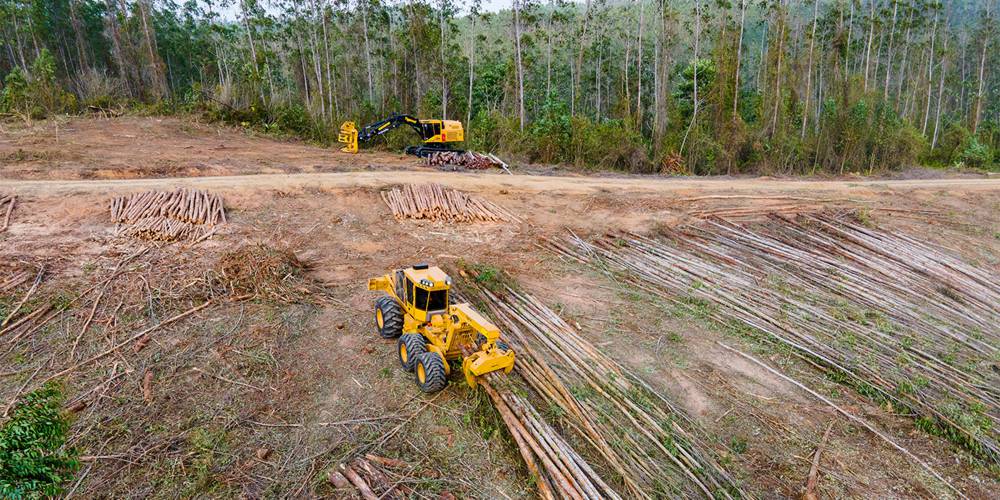
The Birth of a Green Enterprise
The seeds of change were planted when the Colombian government, in partnership with private entities, initiated an action program aimed at enticing foreign investment in various industries. This strategic move had a dual purpose: to foster economic growth and to address the urgent need for reforestation and afforestation of degraded lands. The program’s linchpin was the development of commercial plantations featuring fast-growing eucalyptus and high-value teak (Tectona grandis), both coveted for their demand in European and Asian markets.
The primary objective of this initiative was to create a sustainable source of wood for both domestic and international markets. The resulting plantations, particularly in Montería, Córdoba, have become a testament to the potential of deforestation solutions, simultaneously bolstering the local economy by generating around 300 jobs. This steady employment has replaced the previously erratic and uncertain work opportunities for local agricultural workers.
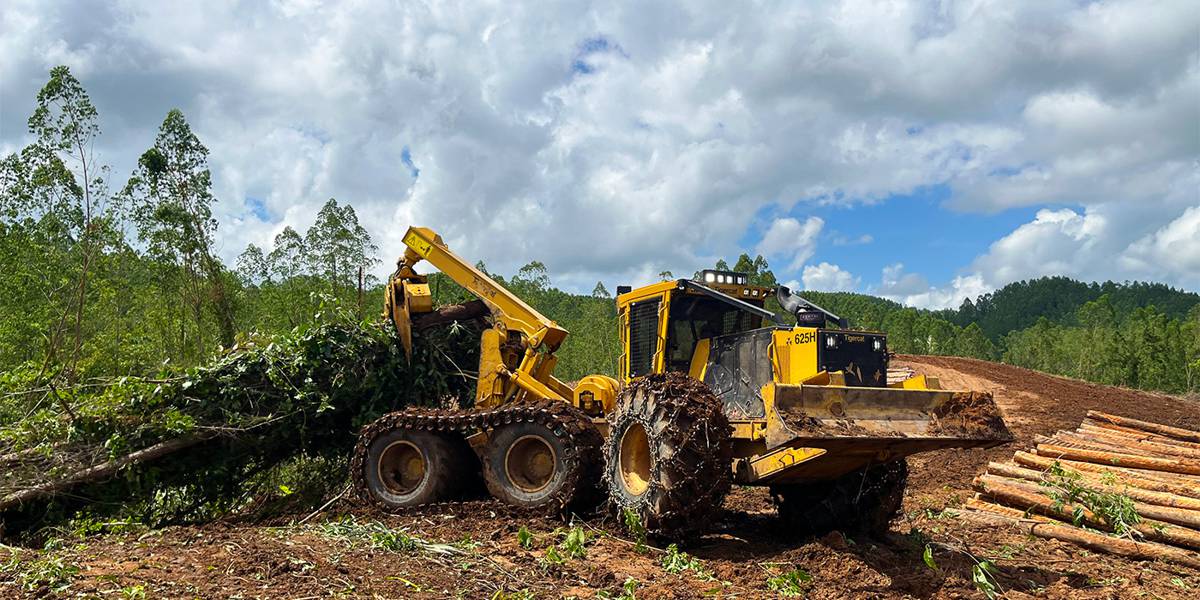
A Chilean Connection: The Pioneers of Reforestation
Enter Luis Enei and Hector Villalobos, two Chilean visionaries with a deep passion for the forestry sector. As leading figures at Orion Capital, a Chilean investment firm specializing in timber harvest and silviculture projects, they were on the lookout for new horizons.
The Colombian government’s action program, replete with enticing subsidies, drew them in. With financial support from Megeve Investments, they founded Reforestadora del Sinú in 2010, strategically situated along the Caribbean coast, an area blessed with favourable climatic conditions. This venture marked the beginning of a new chapter in sustainable forestry management in the region.
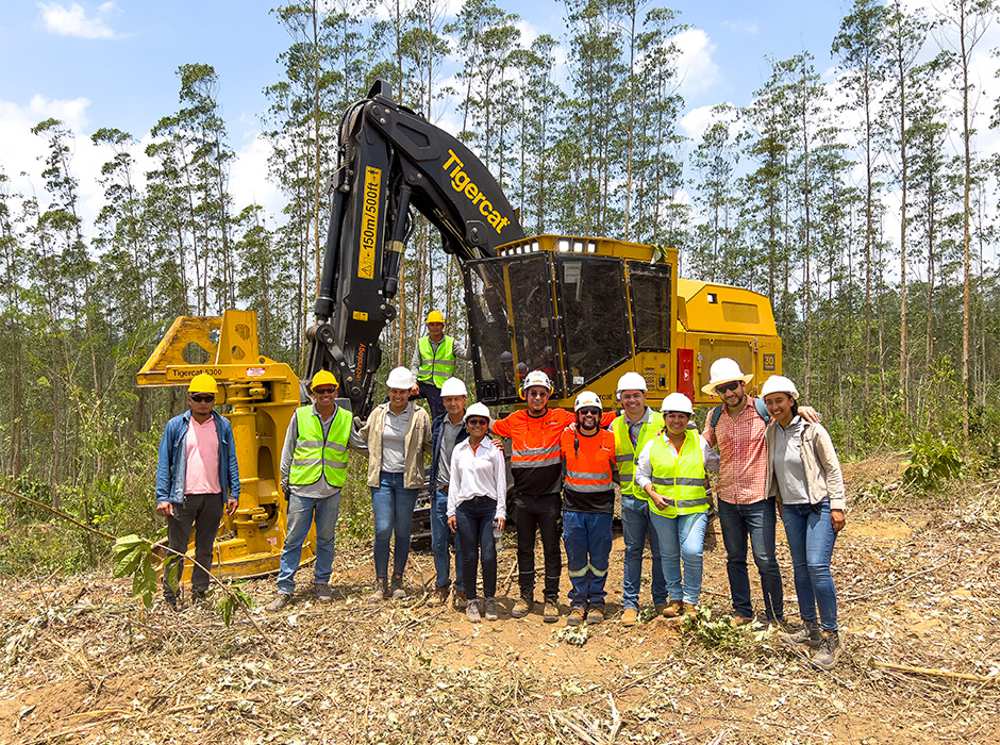
Empowering Communities and Championing Gender Equality
Reforestadora del Sinú distinguishes itself not just through its commitment to reforestation but also by its modern, high-capacity nursery. Producing over 3.5 million seedlings annually through vegetative propagation, the nursery is a hub of biodiversity, focusing on timber species, including hybrids of Eucalyptus grandis and urophylla. The enterprise has become a significant employer in the area, with more than 40 personnel, and notably, 70% of the workforce comprises women, many of whom are the primary breadwinners in their families.
Beyond its commercial activities, Reforestadora del Sinú has made profound impacts on the local communities. The company’s foundation supports over 1,000 families, offering scholarships, developing water treatment plants, maintaining local roads, sponsoring sports events, and implementing health and sanitation education programs.
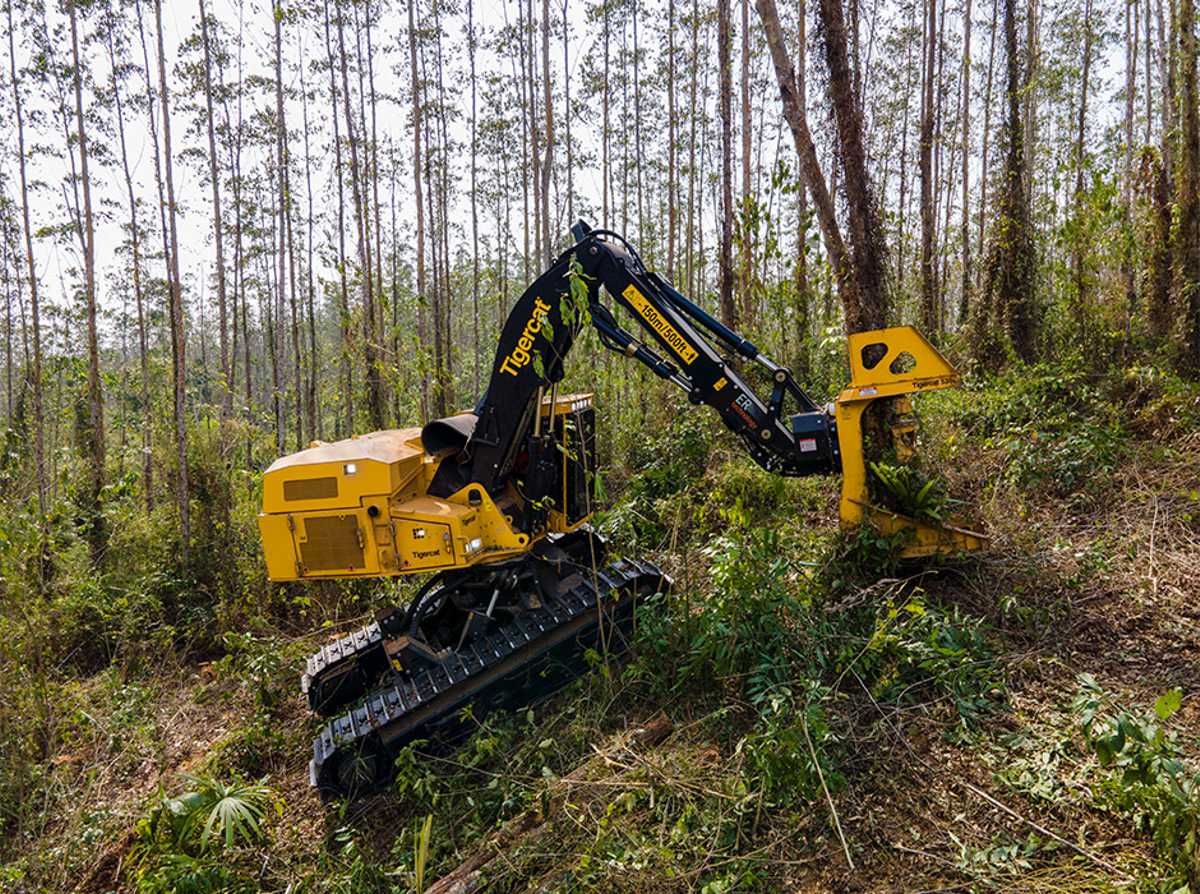
From Plantation to Global Markets: An Operational Overview
Today, Reforestadora del Sinú manages a sprawling 13,000-hectare (32,000-acre) estate of hybrid Eucalyptus urograndis, primarily for roundwood and chip export to Europe and Asia. The plantations, mostly set on gently sloping terrain, with occasional steep inclines, are a testament to both the region’s natural beauty and the company’s operational prowess.
Hector Villalobos highlights a significant milestone: the adoption of a mechanized harvesting system. He notes: “At this critical point, high output levels at competitive costs with the Tigercat harvesting systems are vital for our project’s success.”
Despite pandemic-induced delays, the initial harvest, which commenced in the second quarter of 2023, is expected to yield over 50,000 cubic meters for European clients, with projections of exporting over 250,000 cubic meters annually in the coming years.
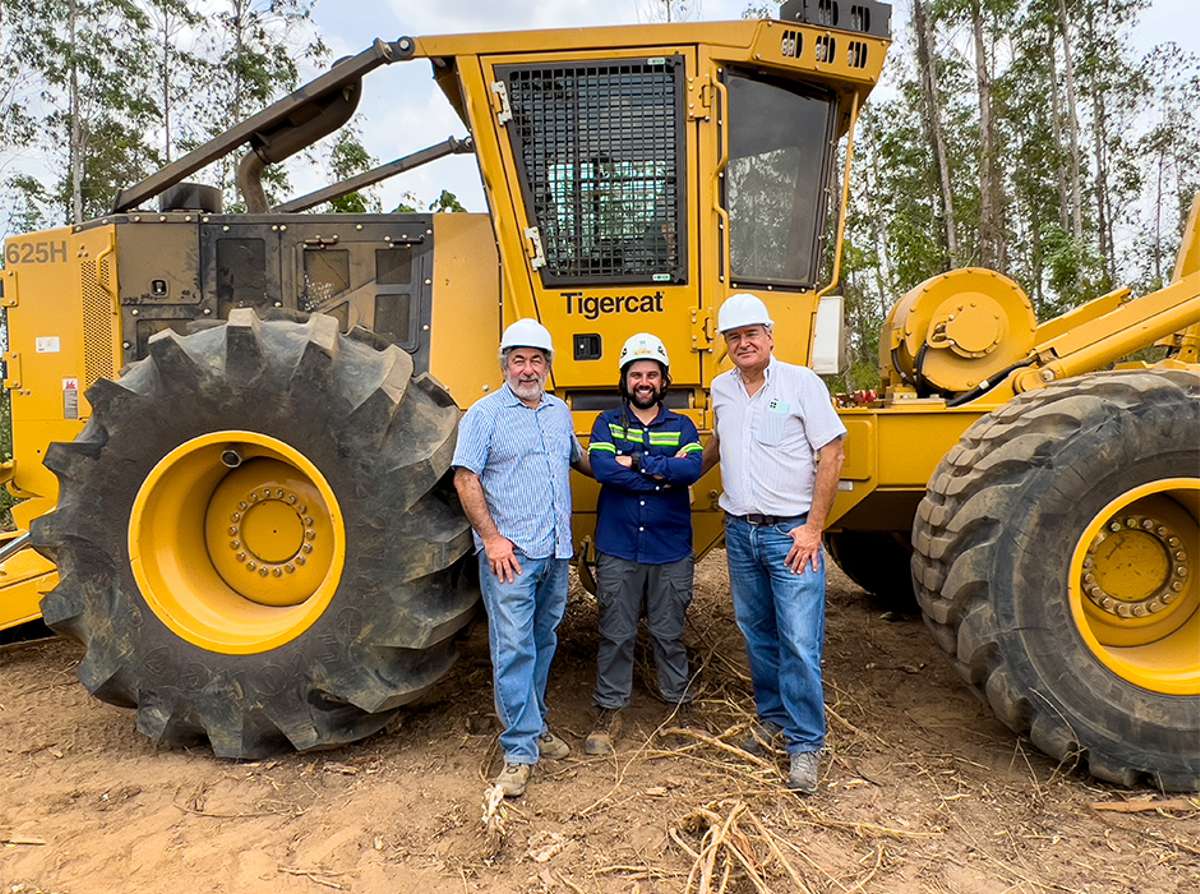
A New Dawn in Forestry Operations
The introduction of the full-tree system, including a L855E levelling track feller buncher and a 625H six-wheel skidder, marked a new era in the company’s operations. The arrival of these machines in the community of Valencia, turned heads and sparked interest among the locals, leaving a lasting impression.
The Tigercat six-wheel skidders have already built a reputation for their exceptional reliability and productivity, especially in challenging terrains like those in Chile and Brazil. The machine’s balance and weight distribution ensure minimal soil compaction and optimal traction, which are crucial for sustainable forestry practices.
For the operators, the transition to using these machines was smooth, aided by their user-friendly controls and ergonomic design, which significantly reduce fatigue during long shifts. The company’s harvesting crew manager, Robert Sandoval, remarks on the advanced features that contribute to the operators’ comfort and efficiency.
Edgar Zamarripa from Latin Equipment Norte S.A. (LEN’s) product support notes the practicality of daily maintenance with the 625H, setting new standards in service access and reducing downtime, thereby enhancing production.
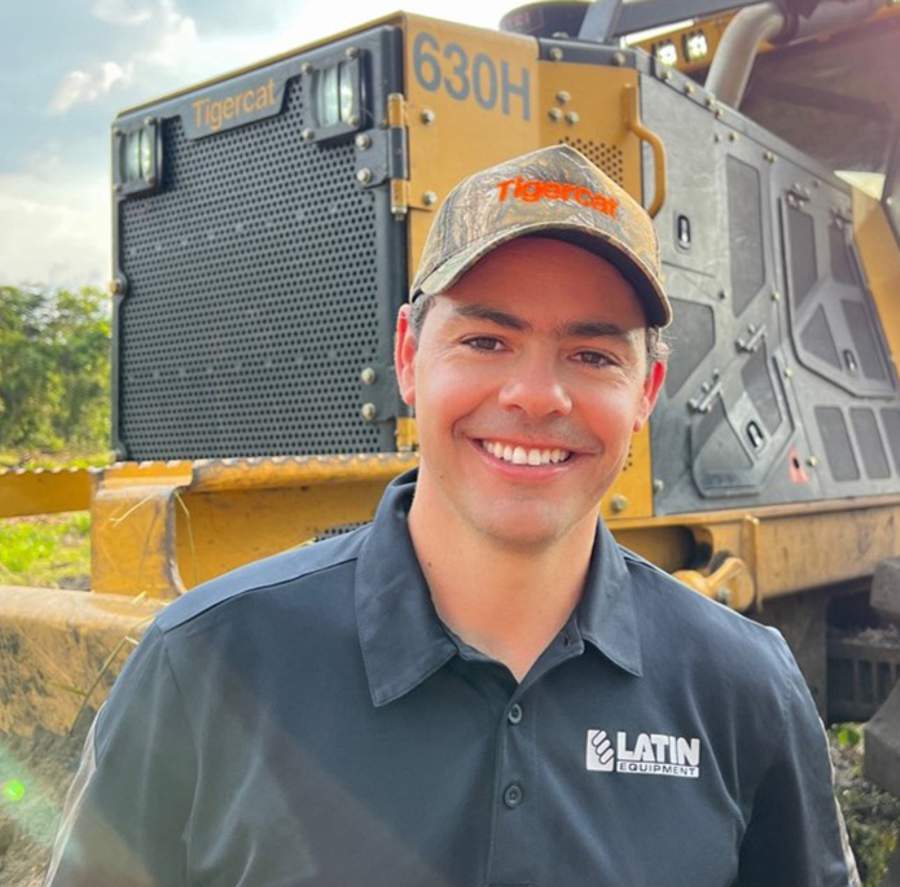
The Way Forward: Balancing Productivity and Sustainability
The ongoing performance and productivity assessments have shown promising results. The new system has not only streamlined operations but also improved efficiency and safety, leading to a reduction in overall costs. Moreover, this mechanization process has been transformative for the workforce, equipping them with invaluable operational and managerial skills.
At LEN, the emphasis is on selecting the right equipment and training people to manage it effectively. This approach is pivotal in determining the success of any project, as it directly impacts performance outcomes.
In conclusion, the story of Reforestadora del Sinú is one of resilience, innovation, and commitment to sustainability. It stands as a shining example of how environmentally responsible practices can align with economic growth and community development, setting a precedent for future forestry endeavours worldwide.




























